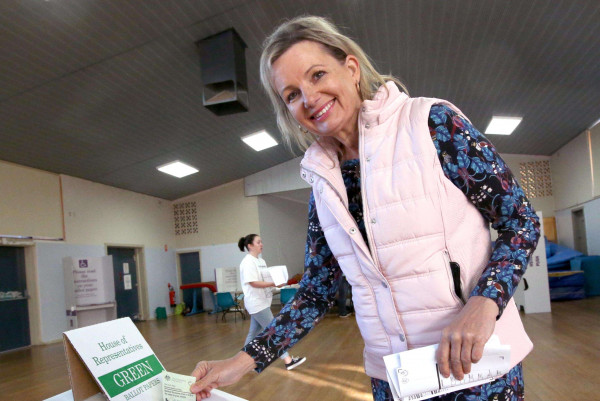ANALYSIS
Michael DiFabrizio
PRESSURING election officials isn’t the kind of thing you’d expect from an Australian politician.
Let alone from one of our local members along the Murray River.
Yet in August, we had Member for Farrer Sussan Ley, on national television, happily engaging in just that.
Asked on Sunrise about the Australian Electoral Commission counting ticks as “yes” votes at referendums but crosses as neither “yes” or “no”, following long-established and legislated savings provisions, she responded: “We ask really serious questions.”
Her argument: “If a tick is yes then a cross should be no, it’s really that simple.”
Her message to election officials: “It’s actually an issue for the AEC. I think (government MP Jason Clare, also appearing on the show) should be talking to them and be absolutely firm on having a fair referendum.”
Fast forward a couple of months, the referendum is done. We can now consider her comments outside of the high-stakes, politicised nature of a heated campaign.
We’ve also since had two Federal Court judgments handed down that considered the same argument Ms Ley was advancing. We can now analyse her comments in light of that information, too.
It doesn’t look good.
The legislation the AEC must follow – written by the Parliament, which Ms Ley sits in – says “effect shall be given to a ballot paper of a voter according to the voter’s intention, so far as that intention is clear”.
Justice Steven Rares rejected the argument that a cross was a clear intention to vote “no”.
“A cross is used in daily life both as a means of selecting one of two or more choices and as indicating a negative choice,” he wrote.
Justice Rares concluded that a cross could be a negative mark intended as a “no”, an intended “yes” that was carelessly filled out in the same way other forms are or, thirdly, an intention to convey that the voter does not wish to engage with or answer the question at all.
A tick, by contrast, “is not a symbol that conveys a negative response”.
Maybe all this should be obvious without the need for Federal Court assessment, but as it happened, we also had an appeal to the first case, which drilled home the same message.
Justices Anthony Besanko, Michael Wheelahan and Angus Stewart, in dismissing the appeal, wrote that a cross next to the ballot-paper question “Do you approve this proposed alteration?” carried “real ambiguity” as to whether the response was favourable or unfavourable.
“This has the consequence that the intention of a voter who completed the ballot paper in this way would not be clear, and would certainly not be clear to the degree required by (the relevant Act),” they wrote.
So there we have it.
Ms Ley publicly advocated for the AEC to interpret votes in a way that would, in the opinion of three Federal Court justices, fall short of the requirements of the law.
She asked a government minister to also approach the AEC, and even invited doubt to be cast about whether there would be a “fair referendum”.
We asked Ms Ley whether, in light of the Federal Court’s judgments, she had apologised to the AEC. She declined to comment.
We asked Ms Ley whether she retracted her comments. She declined to comment.
We asked Ms Ley whether she would be seeking amendments in Parliament to change how ticks and crosses are counted at future referendums. She declined to comment.
To be clear, the AEC, while not above questioning, does a bloody good job.
Not many countries in the world can hold a referendum where the informal voting rate – including all those problematic ballots with crosses – is less than 1 per cent, as happened this year and in 1999.
The TV comments by Ms Ley, despite her being the deputy Liberal leader, could easily be a quickly forgotten moment in a long referendum campaign.
But we all benefit so much from living in a successful democracy.
To continue that success story, it’s not an option to simply let it slide if someone imports the practice of baselessly putting pressure on the people who deliver our fair elections.
If Ms Ley can’t find it inside her to say “sorry” to the officials whose integrity she challenged, she should at least apologise to her constituents.








